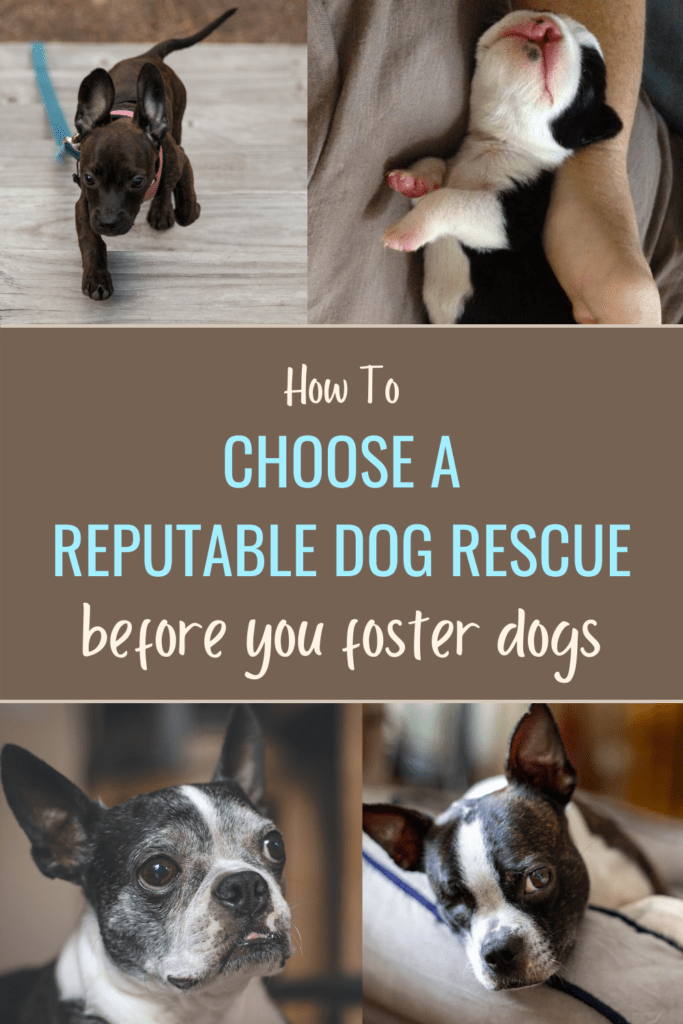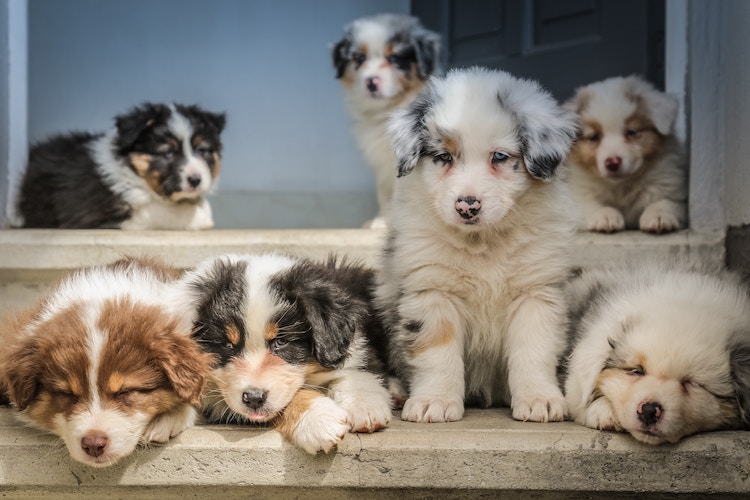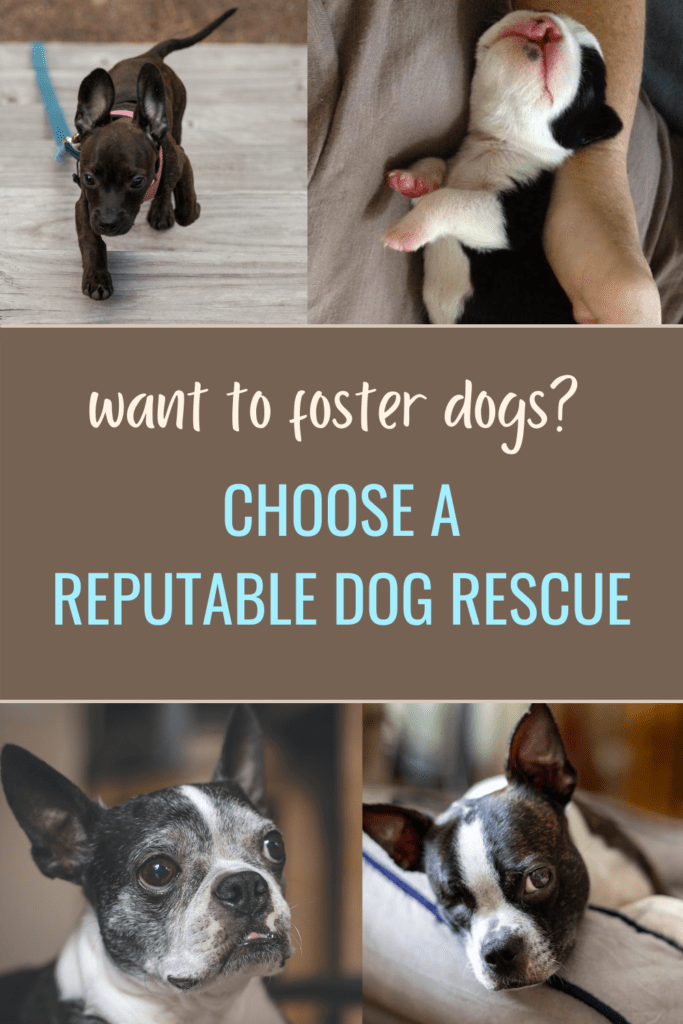updated 2/9/2021
You want to open up your home to a foster dog. You’ve done a lot of soul-searching to get to this point and you are ready. Now, you need to choose a dog rescue agency.
“How do I do that?” Good question!
How do you choose a dog rescue agency? Who do you contact? Which agency is right for you? What questions should you ask? What questions will the agency ask you? Will you even qualify?
I want to help you find a good fit for you and your family.
If you are fostering for an agency that is a good fit, you and your family will have a better experience than if you rush into fostering without doing your homework.
The animal you foster will also have a better experience, as well as your personal pets when you take the time to choose a dog rescue agency.
Looking to adopt a dog from a rescue agency? Here’s how to choose.
Choose A Dog Rescue Agency
Who you should foster with is a very important question, and you may have lots of options! Ask yourself:
- Do you want to foster for your municipal shelter or a private animal shelter?
- Do you want to foster for an all-breed or breed-specific, private, non-profit rescue?
- Do you know of a person in your community that “does rescue” independently and you want to help them out?
- Do you want to do short-term fostering? Special needs fostering?
- Does the agency you are considering have the animals you are interested in helping?
Here are some differences in the types of rescue agencies:
- A municipal shelter agency may have different animal care or vet care policies than a private agency. Similarly, a municipal shelter agency may have different adoption criteria than a private agency.
- A private agency may require more long-term commitments than a municipal shelter agency.
- A private agency may be headquartered in a different town or state than where you reside. Consequently, distance may add some responsibilities to your fostering commitment.
- Some private and municipal agencies have short-term opportunities such as “south-to-north” programs where foster opportunities are for 2-4 weeks. In contrast, private agencies likely have long-term opportunities of months, maybe even years.
- Individual rescuers may or may not have the resources that a private agency or municipal shelter may have.
All agencies vary somewhat, there’s not one that’s perfect, but by doing your homework, there is one that’s likely a perfect fit for you!
These Questions Can Help You Choose A Dog Rescue Agency
If I have one piece of advice it is this: make the time investment to get to know the agency you are wanting to foster for before you actually receive the foster dog.
Read that again.
Furthermore, as difficult as it may be, I really, really advise that you not respond to “Urgent! Urgent! Time’s up at the shelter” posts on social media. At least not until you are a well-seasoned foster parent and have a solid relationship with your chosen rescue agency.
Fostering dogs off the “urgent list” can be as chaotic as fostering gets.
The risks to bringing in a foster dog when you are a novice run the gamut from your sofa being torn to shreds to disease contamination to an injury involving a family member or one of your pets.
Making the decision at 2 a.m. to be a first-time foster parent for a shelter dog is risky and chaotic. It might be dangerous.
If you have a goal of helping dogs on the urgent list, that is awesome! It is even more reason you must do your research on the agency and learn about the support and training you will receive once you do begin fostering.
Take your time. There will always be an urgent list. Jump into that when you are ready – after you choose your rescue agency.
Below are a series of questions you may consider asking the administrator of any rescue, agency, shelter, or individual.
Ask About The Agency
- Ask about the agency’s origin and structure.
Is this a government agency or municipality? Private, for-profit? Private, not-for-profit? An individual rescuer?
How long has the agency or individual been involved in animal welfare? Why did they get involved?
Who governs the agency? Is there a Board of Directors or public official oversight? What is the responsibility of those individuals? Who are the officers of the agency? What is their expertise and experience? - Ask about the agency’s mission. You want to choose an animal rescue agency that can easily articulate their mission.
Ask what types of animals do they care for, what are the goals for those animals and how are those animals cared for while in the custody of the agency.
Questions you may ask are:
- How many animals do you rescue each year? How many of those animals get adopted each year?
- Do you have a kennel or shelter building? How is that maintained? Can I take a tour?
- How many active foster homes do you have?
- Describe how your animals are cared for. Do they see a veterinarian? What are your vetting requirements?
- Do you do any of your own veterinary medicine, can you provide details? What medical conditions are treated/not treated?
- Have any animals died while in your care? How many? What happened?
- Do you euthanize animals? By what method? For what reason? If my foster dog has to be euthanized, what is my responsibility? Do I have a say?
- Is the agency insured? A well-prepared agency will have a liability insurance policy. Find out if they do, and what that policy covers.
Ask: - Does it cover events that occur while an animal is in foster care? You want to know if YOU are covered!
This is an important question! If an agency’s liability policy has exclusion clauses and an event occurs, you want to have coverage either from the agency or your own independent policy. You do not want to get caught holding the bag, as they say.
Ask About The Animals
- Where does the agency obtain their animals? Are they from shelters, owner surrenders, found as strays or transferred to you from another agency? How did those animals get chosen?
- Does this agency specialize in a certain animal? A certain breed or category of breeds (like toy breeds)?
- Does this rescue agency specialize in rescuing “at risk” animals from shelters, or specialize in special needs such as blind or deaf dogs? How did this specialty come to be? Is there training provided to fosters on best practices for these specialties?
- Do animals come into the rescue agency sick or injured? With what illnesses/conditions? How are those cared for or treated?
Will you get guidance? Will your personal pets be at risk? How are they protected?
Who pays for it if your pet becomes sick from an illness brought in by a foster animal? - What is the vetting protocol? Describe what veterinary services each dog receives – physical exam? vaccines? Which ones? How is a dog diagnosed and treated for worms? Is bloodwork drawn? What vetting does the rescue agency absolutely not do?
- Will the pet need to go to the vet? Do you use your vet or the agency’s vet? Who pays for vetting? Who transports the pet to the vet? What if you need help with transportation due to work or distance?
- How is a pet assessed as being ready for adoption? Is there a formal behavioral assessment person/process/protocol? Who decides when a pet is ready for adoption? Do you have a say in deciding who adopts your foster dog?
Ask About The Foster Program
- How do you get approved to foster? What are the requirements? Are there ever exceptions to the requirements?
- Who is in charge of the foster program? What are their duties? What is their expertise?
- Is there an orientation class or will you be provided a foster handbook or access to guidelines/protocols/rules?
- Is there a foster contract? What does it cover? (Or, can you review it)
- What happens in emergencies? Do you have access to an agency administrator 24/7 in case of emergencies?
- What expenses are yours? What expenses does the agency pay? Do fosters pay vet bills? Do fosters make veterinary care decisions?
- Does the agency provide supplies such as collars, leashes, crates, toys, food?
- Is training available for behavioral issues? Medical issues?
- What about help if you have vacation or need to leave town for any reason? What arrangements are made for the foster pet? Are you restricted from taking your foster pet with you on trips?
Ask About The Adoption Program
- How quicky is a foster dog ready for adoption?
- Can you adopt your foster pet?
- Are there adoption events? Are you required to attend?
- Where are foster pets adopted? Do you adopt to homes far away or do you only do local adoptions? How are the dogs transported to non-local adopters?
- How are families chosen? What is the approval process like? Do the fosters participate in the selection of families? Can you say “no” when an applicant wants your foster pet?
- Does the agency provide follow-up contact after the animal is adopted? What happens to animal if the adoption family returns the pet to the agency?
- Is there an adoption contract? What does it cover? (or ask to review it)
Talk About Yourself
The other half of the partnership in fostering for a chosen rescue agency is YOU!
- You should be able to bring to the conversation your interests, skills, personality, and yes – your struggles.
- Talk about your reasons for wanting to foster, and disclose if you are wanting to foster solely for the purpose of adopting.
- Talk about your hesitations and concerns.
- Talk about your interactions with your current pets, your home’s activity level, your work and leisure schedules.
- Talk about your need for/resistance to rules, (we all fall somewhere on that continuum!) your communication preferences, and your willingness to possibly do something that is outside your comfort zone.
For example, an agency may require that you provide crate-training for your foster dog. Are you averse to this requirement? Will you refuse to do what is asked or are you interested in learning new skills?
Choose A Rescue Agency To Form A Partnership.
Volunteering for a rescue agency is a partnership.
You aren’t doing an agency a “favor” by helping a dog, nor is an agency absolved from responsibility because they are also volunteers, after all.
Rescue is a business and fostering is a partnership with both sides committing to upholding their responsibilities. It is a partnership in place for the good of the dog, family, and community.
It’s a beautiful thing.
Good luck in your journey to choose your dog rescue agency. There is not a perfect agency out there, but there likely is one that is a good match for you.
Be knowledgeable, flexible, willing to learn, and patient. Give yourself permission to interview or even change rescue agencies as often as it takes to find the best fit for you.
In interviewing agencies, you may decide that fostering is not what you thought it was. You may find that you can help animal rescue by volunteering in a different way. It’s all good and it all makes a difference. The dogs need you.
Happy interviewing! Happy fostering!
Pin Me!

Popular Posts
- HOW TO CHOOSE A DOG RESCUE AGENCY
- ULTIMATE GUIDE TO FOSTERING: 10 SKILLS YOU NEED
- VOLUNTEER IF YOU CANNOT FOSTER





